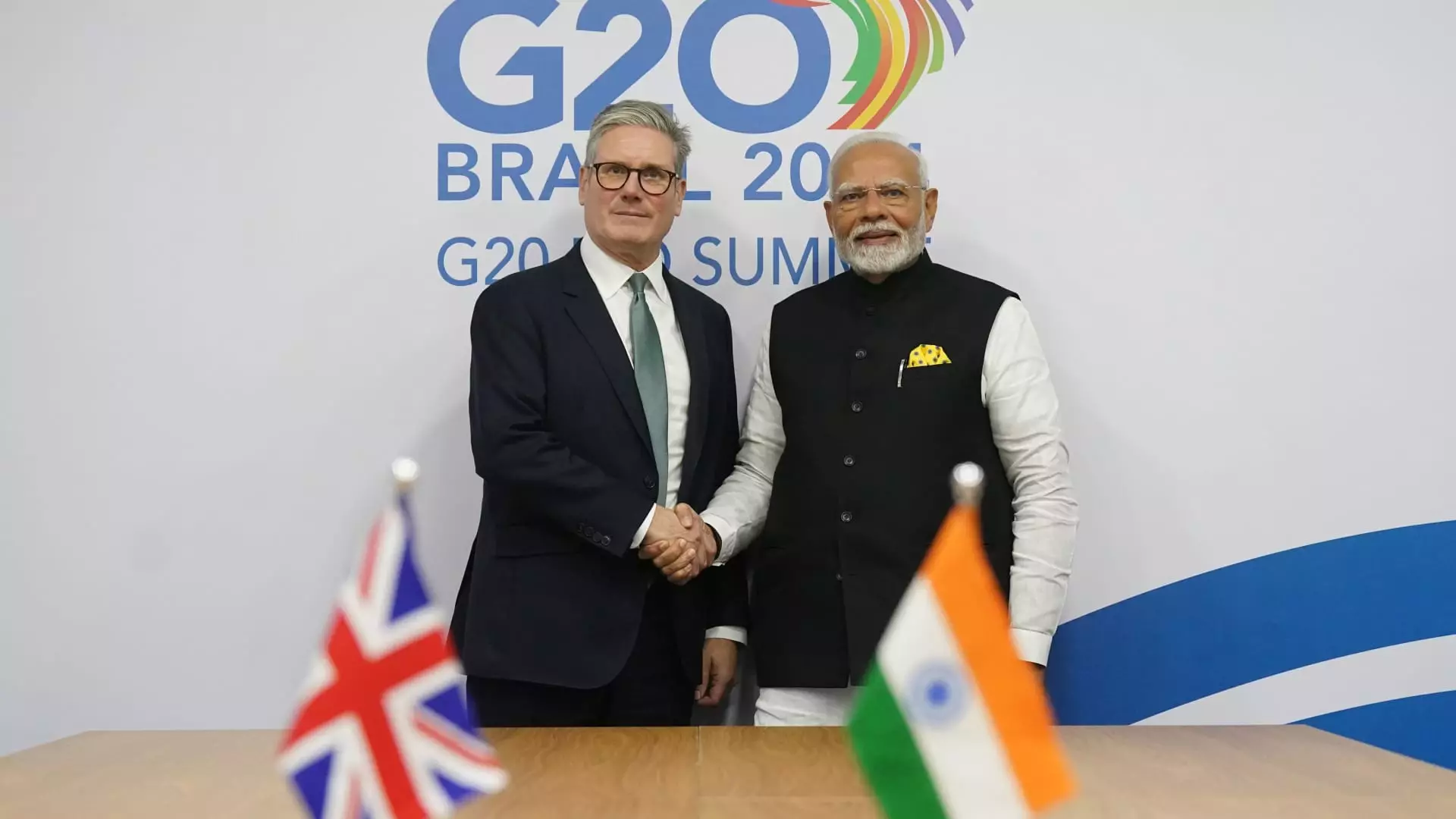As the United States prepares to assume the G20 presidency next year, a troubling shift in its approach to multilateralism is becoming increasingly evident. Historically, the G20 has been a crucial platform for global economic cooperation, involving diverse voices from both developed and emerging nations. However, recent actions by the U.S. government reveal a deliberate move away from this collective model towards a more insular, America-first posture. This pivot threatens not only the cohesion of the G20 but also the foundational principles of international collaboration that underpin global stability.
By scaling back its participation and signaling intentions to streamline the policymaking process, the U.S. seems to devalue the importance of broad-based international dialogue. This is starkly illustrated by the absence of top officials at recent meetings and the expectation that the upcoming summit will be a pared-down affair, concentrating solely on core financial issues. Such a strategy risks reducing the G20 to a symbolic forum rather than a practical vehicle for addressing urgent global challenges, including climate change, pandemics, and economic inequality.
The U.S.’s skepticism emerges from a deep-seated belief that multilateral institutions often serve the interests of others at the expense of American sovereignty. Under the Trump administration, there was a conscious effort to deprioritize those institutions, viewing them as bureaucratic obstacles rather than engines of cooperation. This attitude reflects a dangerously shortsighted perspective that neglects the interconnected nature of today’s global economic landscape. No country, especially one as influential as the U.S., can afford to isolate itself from international consensus on issues that transcend borders.
Undermining Global Stability: Consequences of a Reduced American Role
This retreat from multilateral diplomacy comes with significant risks. The U.S. has historically played a leading role in shaping the G20’s agenda, balancing interests between nations with divergent priorities. When Washington signals disinterest or diminishes its engagement, it creates a power vacuum, inviting countries like China, Russia, and others to fill the void. Such shifts can fracture the unity needed to tackle complex issues like global financial stability, debt management, and sustainable development.
Furthermore, the sidelining of key working groups—especially those on climate, health, and trade—undermines the G20’s effectiveness. These arenas are interconnected; ignoring the broader scope of global challenges reduces the forum’s capacity to deliver comprehensive and sustainable solutions. For instance, neglecting climate issues or development concerns diminishes the organization’s legitimacy and hampers efforts to foster inclusive growth. It is not merely about cutting costs or streamlining procedures; it is about abandoning the holistic approach necessary to manage today’s intricate economic ecosystem.
Critics may argue that prioritizing core financial stability is pragmatic; however, such a narrow focus risks overlooking the long-term resilience of the global economy. Ignoring the social and environmental dimensions—areas where the U.S. has historically played a leadership role—only emboldens other powers to pursue their interests unilaterally. This could lead to increased instability, economic fragmentation, and the further deterioration of international norms designed to protect weaker economies and promote shared growth.
Implications for the Future of International Cooperation
The signal from Washington raises questions about the future of global governance. If the U.S. diminishes its participation and influence within the G20, it opens the door for other nations to set the agenda unchecked. Countries such as China, which has shown a willingness to leverage multilateral forums to expand its influence, will likely step in to fill the leadership void. This shift risks tilting the balance of global power further away from democratic norms and toward authoritarian influence, which is incompatible with liberal international values rooted in transparency, inclusivity, and mutual accountability.
From a liberal perspective—centered on the importance of multilateralism, global cooperation, and human rights—the U.S. withdrawal signals a retreat from the shared responsibility that defines a peaceful, stable international order. It exemplifies a shortsighted nationalism that neglects the realities of interconnected economies and the necessity of collective action. While protecting American sovereignty is vital, it must not come at the expense of global progress. Reduced engagement may provide short-term political gains but ultimately destabilizes the very foundations of a rules-based international system designed to promote fairness and sustainability.
The potential consequences are profound. Without U.S. leadership, progress on critical issues like equitable economic recovery, climate action, and debt relief could slow or collapse altogether. Developing nations might find themselves increasingly marginalized, further widening the global inequality gap. Long-standing institutions like the IMF and World Bank may also struggle to adapt to an evolving geopolitical landscape if major players withdraw or shift priorities.
In contemplating the future, it is clear that meaningful global progress depends on robust, inclusive cooperation. The U.S., as a nation that historically shaped and supported multilateral institutions, bears a responsibility to fulfill that role—not to retreat into isolationist tendencies that threaten to undermine centuries of progress. If the U.S. truly wishes to preserve its influence and safeguard the principles of liberal internationalism, it must re-engage with the global community—not diminish it.

